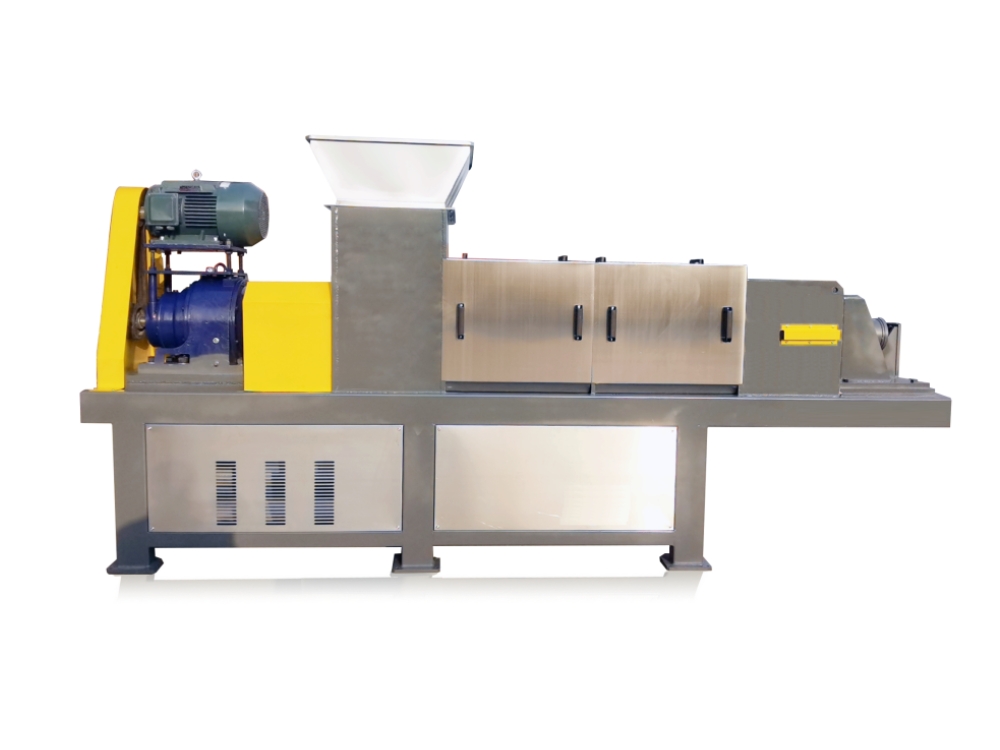
In various industrial processes, wastewater treatment, and agricultural applications, the need for effective liquid-solid separation is paramount. Dewatering screw presses have emerged as crucial machines in achieving this separation efficiently. These innovative devices play a key role in reducing the moisture content of sludge, slurry, or other materials, making them more manageable and environmentally friendly. In this article, we will explore the working principles, applications, and benefits of dewatering screw presses.
Working Principles:
Dewatering screw presses operate on the principle of mechanical dewatering, utilizing a combination of pressure and mechanical forces to separate liquids from solids. The core components of these machines include a helical screw and a cylindrical screen. The material to be dewatered is fed into the machine, where the screw rotates, conveying the material towards the screen. As the material moves along the screw, the pressure increases, leading to the expulsion of water through the screen. The dewatered solids are then discharged, resulting in a significantly reduced moisture content.
Applications:
Dewatering screw presses find applications across diverse industries, each benefiting from the efficient separation they provide. Some common applications include:
Wastewater Treatment: Municipal and industrial wastewater treatment plants use dewatering screw presses to process sludge generated during the treatment process. By reducing the water content, the volume of sludge is minimized, facilitating easier disposal or further treatment.
Agriculture: In agriculture, dewatering screw presses are employed for the separation of liquid and solid components in manure or other organic materials. This process yields a nutrient-rich solid product that can be utilized as fertilizer, while the separated liquid can be recycled or treated separately.
Food Processing: The food industry employs dewatering screw presses for extracting moisture from various food by-products, such as fruit and vegetable pulps. This not only reduces waste but also contributes to the efficient utilization of resources.
Mining: Dewatering of slurry generated in mining operations is another vital application. By extracting water from the slurry, dewatering screw presses contribute to the efficient handling and disposal of mining waste.
Benefits:
The adoption of dewatering screw presses comes with several advantages:
Reduced Environmental Impact: By minimizing the moisture content of waste materials, these machines contribute to environmentally responsible disposal and promote sustainable practices.
Cost Efficiency: Dewatering screw presses result in lower transportation and disposal costs due to the reduced volume of dewatered material.
Resource Recovery: In agricultural and food processing applications, the separated liquid often contains valuable nutrients, allowing for resource recovery and reuse.
Compact Design: Dewatering screw presses are typically compact and require less space compared to alternative dewatering methods, making them suitable for various settings.
In conclusion, dewatering screw presses play a pivotal role in achieving efficient liquid-solid separation across diverse industries. Their innovative design and numerous benefits make them indispensable for reducing waste, minimizing environmental impact, and promoting sustainable practices in various processes.

 TEL:+86 15336363999
TEL:+86 15336363999
 WeChat:gongchris1111
WeChat:gongchris1111
 ADD:Fangzi District, Weifang City, Shandong Province, China
ADD:Fangzi District, Weifang City, Shandong Province, China